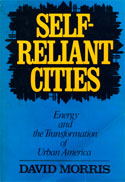Campaign Finance Reform
In the United States, candidates for public office have always needed money to run for public office. To get it they have often depended on wealthy contributors expecting favors in return. In 1971, the federal government passed the Federal Election Campaign Act (FECA), in an attempt to combat this phenomenon. The FECA (which was amended several times until 1979) put a cap on the amount a single donor could contribute to a campaign for federal government, and required public disclosure of these contributions.… Read More




